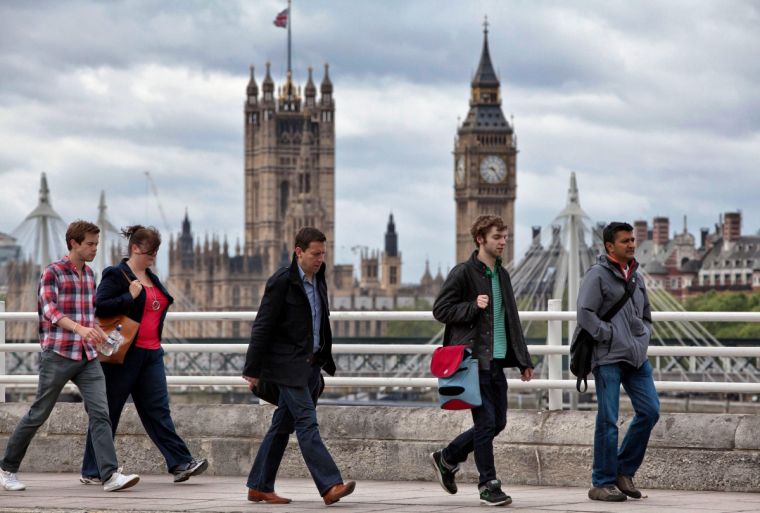Minimum wage is 'too low to keep people out of poverty'

"Hard work is not working." That was the conclusion of Julia Unwin, the chief executive of the Joseph Rowntree foundation, which has warned in a new report that over half of all those in poverty in the UK are employed or part of a household with one employed member.
Approximately 6.7 million working families live below the poverty line – defined in the report as living on below 60 per cent of the national median income. This represents an increase of 500,000 on 2012 figures, and surpasses the combined 6.3 million retired and out-of-work.
Average income has fallen eight per cent since 2008's peak, meaning that there are two million people who would have been below the poverty line in 2008 who are now only just above it.
The largest single social group to fall into the poverty class this year are working age adults with no dependent children - 4.7 million people came into this category.
"We have a labour market that lacks pay and protection, with jobs offering precious little security and paltry wages that are insufficient to make ends meet," said Ms Unwin.
Peter Kenway, Director of the New Policy Initiative and author of the report said the value of the safety net for working age adults is "sinking steadily".
"The support on offer to people who fall on hard times is increasingly threadbare, with benefit levels on a downward spiral," he said.
"A strong safety net to catch those who fall is vital for social mobility - millions are saved by it every year even now - yet no leading politician will defend it."
Neil Cooper of the Church Action on Poverty charity said the Government needed to go beyond the minimum wage to institute a living wage.
"It's good that there is a minimum, but it's too low to keep people out of poverty. A family with someone working full time on the minimum wage may still be in poverty," he said.
He attributes the rise in working poor to an increase in the use of part-time work and zero hours contracts since the 2008 crisis.
Jeremy Aspinall, of the Church Urban Fund, agreed, saying that zero hours contracts were making working hours unstable and undermining the purpose of the minimum wage.
"Being able to work a reasonable amount of hours one week and not the next … it creates all sorts of problems in terms of generating enough income for bills that are fixed," he said.
Jenny Herrera, of the Acts 435 financial support website, said salaries were not increasing to match rising living costs.
"It's becoming almost impossible to just get the basic things on some of these really low salaries," she said.
Mr Cooper said that the implementation of a living wage would not only benefit the employees but also the economy "because it means people are more motivated and stay longer".
To create greater stability for people, he said the Government needed to provide tax incentives for companies to hire people on a full-time basis, rather than splitting one person's job between two part-timers.
The Church across the board is taking great strides to make sure that work can be a real route out of poverty, not only signing pledges to support campaigns for the living wage, as was done in a mass campaign in Manchester recently, but also by committing to being a living wage employer itself.
However, Ms Herrera pointed out that in addition to helping people in poverty practically, the Church needed to be a real presence among the poor and create supportive personal relationships.
"Just Sunday mornings are not where those in need are at," she said, as she suggested churches run cafes or clubs in addition to providing practical support.
"One of the things we've noticed is just how isolated people feel, especially if they're in great need.
"When we've helped people it's often not just the item they've received. It's the fact that someone cared. It's the fact someone was bothered about them."











